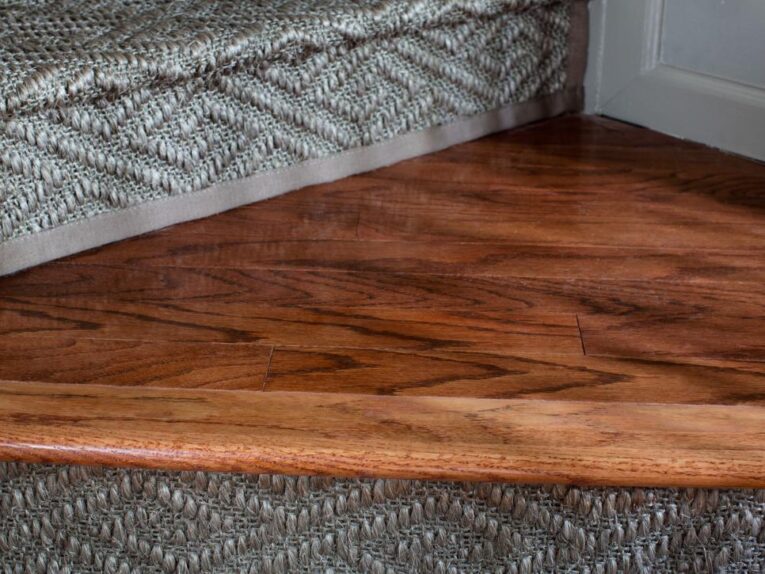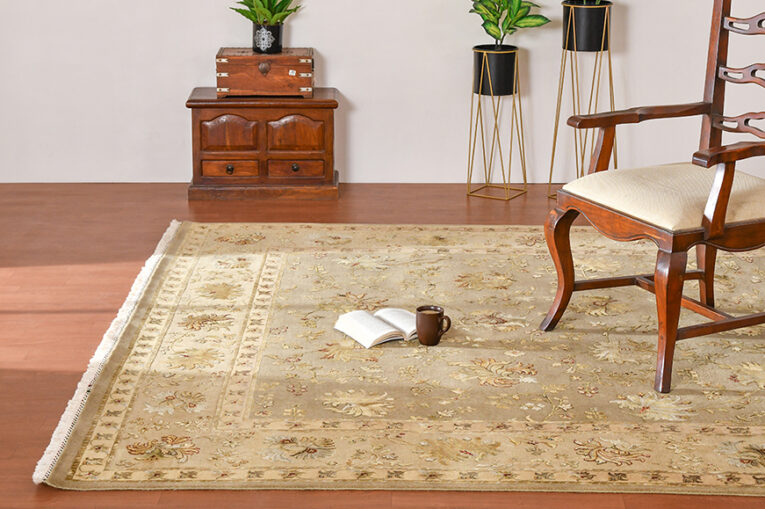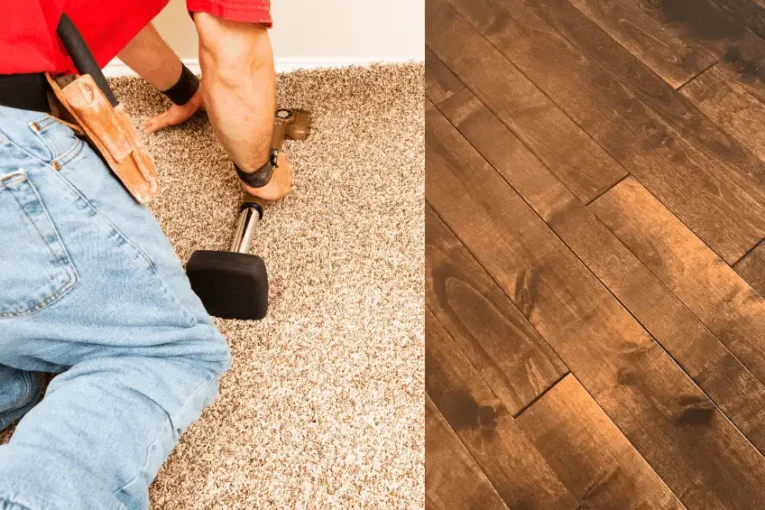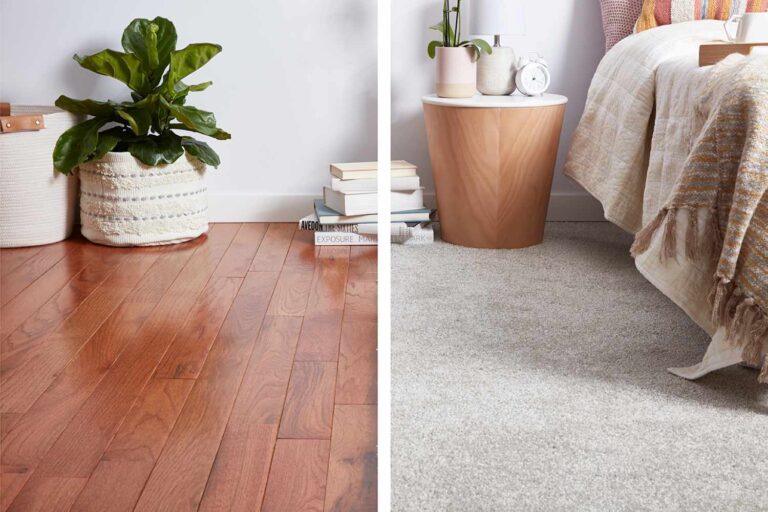When it comes to choosing the flooring for your home, there are many options to consider, from tiles to vinyl, laminate, and more. However, two of the most popular choices are carpet and hardwood flooring. Each has its own unique benefits and drawbacks, and the decision ultimately comes down to personal preference and practical considerations. In this article, we will compare carpet and hardwood flooring and discuss the factors that can help you make the best choice for your home.
Table of Contents
Aesthetics and Design

Both carpet and hardwood flooring come in a wide range of colors, textures, and patterns, making it easy to find a style that suits your home’s design aesthetic. Hardwood flooring has a classic look that adds value and elegance to any home. It can be stained in a variety of shades, from light to dark, to match any interior design. The natural grain and texture of the wood also provide visual interest and texture. Carpet, on the other hand, can add warmth and comfort to a room’s overall design. Additionally, they come with a timeless feature. The range of colors and patterns of carpet that you can find on this site allows customization and creativity in decorating a room. Carpet can also add a sense of luxury and sophistication to a space.
Durability and Longevity
The durability and longevity of flooring are among the primary factors to consider when choosing between carpet and hardwood flooring. Hardwood flooring is known for its strength and durability and can last for decades with proper care. The material is naturally sturdy, and the finish can be further strengthened with a protective layer, such as wax or polyurethane. This makes it resistant to scratches, dents, and other forms of wear and tear, which is why hardwood is often used in commercial settings. Carpet, on the other hand, is more susceptible to wear and tear, stains, and damage so it can have a shorter lifespan than hardwood flooring. However, if you are purchasing a carpet from a reputable and reliable manufacturer, you can ensure that it has a high-quality feature that will last for years.
Maintenance and Cleaning
Both carpet and hardwood flooring requires regular cleaning and maintenance to keep them looking their best. The carpet requires more frequent cleaning and maintenance, as it is prone to accumulating dust, dirt, and stains. Regular vacuuming, spot cleaning, and steam cleaning are essential to keeping carpets clean and hygienic. On the other hand, hardwood flooring is easier to clean and maintain, requiring only occasional sweeping or mopping. In fact, over-cleaning hardwood can be harmful, as it can strip the finish or cause the wood to warp or discolor. As long as spills are wiped up promptly and the floor is kept free of debris, hardwood can maintain its natural shine and beauty for years.
Comfort and Noise

Carpet is known for its soft and plush texture, providing a comfortable and cozy feel underfoot. It also has noise-dampening qualities, making it an ideal choice for rooms where noise reduction is important, such as bedrooms or home offices. The thick pile of carpet can absorb sound waves, making it an excellent acoustic insulator. In contrast, hardwood flooring can be noisy, especially in areas with high foot traffic. The sound of footsteps and furniture being moved can echo throughout the room, making it less desirable in rooms where peace and quiet are a priority.
Cost and Value
Hardwood flooring is generally more expensive than carpet, both in terms of materials and installation costs. However, hardwood flooring adds value to your home and can potentially increase its resale value, while carpet may not have the same effect. Additionally, hardwood flooring can last for decades, making it a more cost-effective long-term investment. The cost of carpet varies depending on the type of material used and the quality of the installation. While it may be less expensive initially, the carpet will need to be replaced more frequently, which can add up over time. Ultimately, the cost and value of each flooring option depend on individual circumstances, such as budget, long-term plans, and personal preferences.
Room Suitability
The suitability of carpet and hardwood flooring depends on the room’s function and purpose. Carpet is often preferred in bedrooms, living rooms, and other areas where comfort and noise reduction are important. It can also be an excellent choice for families with young children or pets, as it provides a soft and safe surface for play. Hardwood flooring is more suitable for high-traffic areas, such as hallways, entryways, and kitchens, where durability and easy maintenance are a priority. Additionally, hardwood can create a seamless flow between rooms, making it an ideal choice for open floor plans.
Installation

The installation process for hardwood flooring and carpet is vastly different. Installing hardwood flooring requires more time and expertise, as it involves sanding, staining, and sealing the wood. Additionally, hardwood flooring must be acclimated to the environment before installation, which can take several days. Carpet installation is generally quicker and requires less specialized knowledge. However, the quality of the installation can greatly impact the lifespan and appearance of the carpet. Poor installation can lead to wrinkling, bunching, or bulging, which can be both unsightly and hazardous.
Environmental Impact
When it comes to the environmental impact of flooring options, hardwood and carpet each has their own pros and cons. Hardwood is a natural and renewable resource, and when harvested responsibly, it can be a sustainable choice. Additionally, hardwood flooring can last for decades, reducing the need for replacement and minimizing waste. However, the harvesting and transportation of hardwood can have a significant environmental impact. On the other hand, carpet is often made from synthetic materials, such as nylon or polyester, which are derived from petrochemicals. These materials have a high carbon footprint and are not biodegradable, making carpet a less environmentally friendly option. However, some carpet manufacturers are now using recycled materials or natural fibers, such as wool, to create more eco-friendly options.

